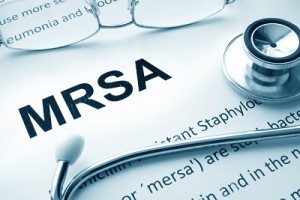How Afraid Should We Be of MRSA?
 By now you’ve probably heard about or known someone who has contracted MRSA. These experiences can range from fairly common skin infections to horrible stories of children who suffer lasting harm from serious MRSA-related illnesses. As a physician, I hear this question from concerned parents all the time: “How scared should I be?”
By now you’ve probably heard about or known someone who has contracted MRSA. These experiences can range from fairly common skin infections to horrible stories of children who suffer lasting harm from serious MRSA-related illnesses. As a physician, I hear this question from concerned parents all the time: “How scared should I be?”
Most parents will be glad to know that serious MRSA infections are rare, and most can be treated easily. But serious cases do happen, and the number could continue to grow as the medical community struggles with what to do about antibiotic resistance. The good news is that you can play an active role in minimizing your risk.
MRSA is an acronym for methicillin-resistant Staphylococcus aureus, which is a type of staph bacteria. Multiple strains of staph bacteria are quite common in the environment, and all of us have staph bacteria living harmlessly on our skin or in our noses. Staph bacteria can enter the body through the skin via cuts, scrapes or rashes, and can cause minor skin infections. Most are self-limited and heal on their own if the wound is kept clean, but sometimes antibiotics are needed if signs of infection develop.
The MRSA strain is different from other staph bacteria because of its resistance to most of the antibiotics that have traditionally been used to treat staph infections. Methicillin is one of many antibiotics to which MRSA has developed resistance and is no longer effective in treating infections. When bacteria become resistant to antibiotics, they are harder to kill and it becomes more difficult to treat infections. Bacteria become resistant by changing in ways that affect the ability of the antibiotics to work effectively.
How do you keep your child safe and help doctors curtail antibiotic resistance?
- Be patient. If your child is sick, give them an opportunity to fight colds and upper-respiratory viruses. Antibiotics will only help if bacteria are causing a sinus or ear infection (typically after several days of illness).
- Follow instructions. Take antibiotics as the doctor has prescribed them. If you are supposed to take a 10-day course or finish all of the medication, then do so. Do not hoard antibiotics for future use.
- Leave it to the professionals. Do not “put yourself on antibiotics” if you have some left over from a previous illness.
- Wash your hands with ordinary soap and don’t use antibacterial soap that contains the ingredient triclosan. The repeated use of triclosan gives bacteria regular exposure to the germ-killing agent to which they can become incrementally resistant.
If your child is genuinely ill and seems to be worsening quickly, do not hesitate to take him or her to the emergency room or urgent care. A serious MRSA infection requires immediate treatment. If you have any questions, never hesitate to call your doctor. You can read more at http://www.kidshealth.org/.
This blog was produced in partnership with Charlotte Parent. Click here for the original post and other parenting resources.













